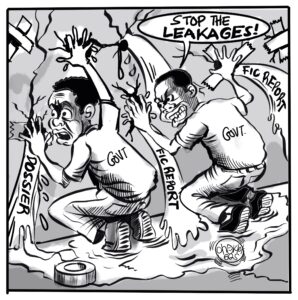Home Affairs Minister Stephen Kampyongo says activities of civil society organisations (CSOs) will determine how the law treats them.
But the minister says government does not feel threatened by advocacy activities of the CSOs.
Speaking on Hot FM’s Frank on Hot programme, Tuesday, Kampyongo, who was asked to comment on the arrest of civil rights activists Chama Fumba and Alliance for Community Action executive director Laura Miti, said law enforcement agencies will ensure that the law is protected.
Fumba, the musician popularly known as Pilato, was arrested from the Catholic Church on Saturday alongside Ladlas Mambwe, and charged with unlawful assembly for having a youth gathering allegedly without notifying police.
Miti and ACA programmes manager Bornwell Mbewe were later arrested on Saturday night when they travelled to Livingstone to secure the release of Pilato and Mambwe, on accusations of assaulting a police officer.
“How can we be uncomfortable when you have just mentioned two individuals when the country has more than 18 million people? Uncle Frank, you are a very known citizen. If today you woke up and just be cantankerous, breaking the law, we won’t look at you as Uncle Frank. It is what you are doing, your activities that will determine how you will be treated, that is how it should be. Not that you are a threat, to who? It is your conduct that will determine how you will be treated by society and by the law enforcers. So for me, I find it strange that they are being singled out. How many people are doing advocacy? How many people are taking up tasks in various things? In Parliament, we engage almost every other day with open views, it is acceptable. Even if I sit, here people will be committing all sorts of issues and they (police) will act,” Kampyongo said.
And the minister has warned those excited about the recent pronouncement on legalisation of cultivation and exports of medicinal Marijuana that government will ensure existing laws on the drug are applied.
“According to the International Narcotic Control Board, they say that medical use of cannabis is allowed under international control treaties only if states with the treaty comply with the treaty requirements that are designed to prevent diversion to non-medicinal use as outlined in article 23 and 28 of the 1961 [Single Convention] on Narcotic Drugs. So what it means is that even when the Ministry of Health is tasked under those restrictions and measures, you can’t export without being given a quota and you are not going to export raw products,” Kampyongo said. “This International Narcotic Drugs Board will approve which countries will be in need. They are the ones that are in control because the same fears that you are raising are the same fears that we who are in the enforcement are raising. So this is how it should be done, even when you extract for medicinal purposes, the market will be provided by this international board. Yes you have got country A which needs this particular product and that we can only give you this quota, this quantity is what you can export.”
He said people should not get excited to think that they can freely cultivate cannabis.
“All these laws we have been using are in force, the Narcotic and Psychotropic Act is in force. Drug Enforcement Commission will continue to enforce it. So people should not get excited that anything has been legalized, no! That is a misconception and misinformation. People must understand that these substances were not controlled for nothing, they were controlled because of the effects they have on human beings. So…to assure the nation, the laws will continue to be applied. Drug Enforcement [Commission] will continue to perform their mandate as provided for in the Act. So going forward, the Ministry of Health will update the measures and who will be allowed.”
And Kampyongo said the ongoing mobile national registration exercise is not only for PF strongholds but for the whole country.
“We have phased the mobile registration [exercise] because we need to manage the mobile registration properly and matching the resources that are available. So I mentioned that the mobile registration which will be starting soon will be in three provinces: North Western, Luapula and Northern provinces. In the previous mobile registration which was done, these were the last provinces. This was the last phase; the previous mobile registration started with Southern, Western and Eastern provinces if I am not mistaken but no one complained at that time so you know people are just being naive and scared of their own shadows,” said Kampyongo.
“And I want to make this clear [that] those who think they will make attempts to register the underage, when we come and computerise these systems, all this will be caught up because then we will be getting the biometrics and it will be a different system except we don’t want to align these system to the electoral cycle. So there is no such a thing that no, we are going to the [PF] strongholds. All the Provinces will be covered. All the ten provinces will be covered but we are doing it in phases. Three provinces, three provinces and the last will cater for obviously four provinces.”
























